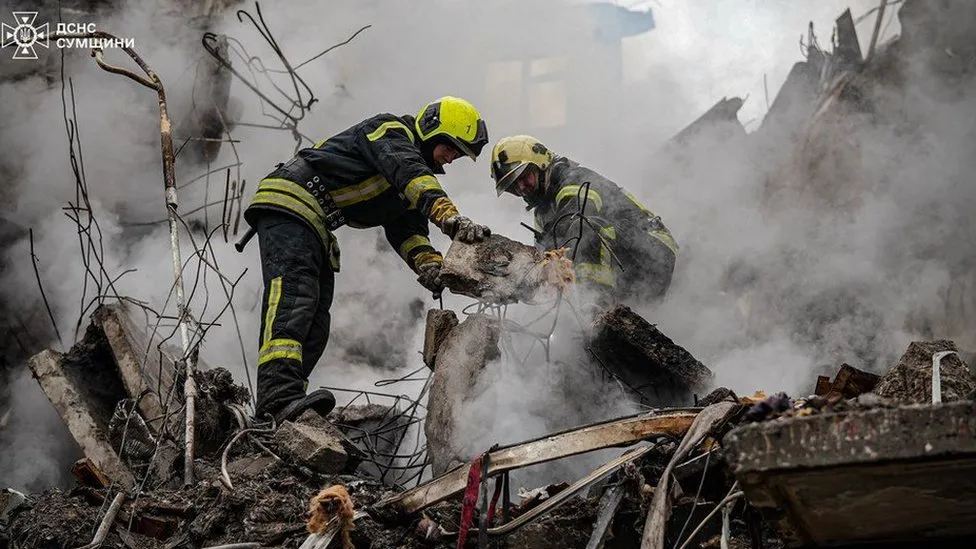Ukrainian Crisis Deepens: Linking Putin to Escalating Warfare
When Ukrainians analyze Russia’s presidential “election,” they often use quotation marks to signify their doubts about its legitimacy. There was little hope for a fair outcome in Ukraine as the entire voting process seemed meticulously controlled.
The main point of interest was the level of support Vladimir Putin would claim, and 87% was certainly a significant figure, even for him. However, the atmosphere in Ukraine was far from celebratory. Despite the numbers on paper, the consequences were clear: an uptick in deadly attacks, heightened drone activity, and intensified shelling. The full-scale invasion ordered by Vladimir Putin two years ago continued without pause.
Ukraine’s President, Volodymyr Zelensky, didn’t hold back in his reaction to the official result, labeling Putin as “sick with power” and as someone who would go to any lengths. Zelensky called on Ukraine’s allies to ensure Putin faced consequences, pushing for his trial at The Hague, referencing the International Criminal Court.
Putin is already wanted by The Hague for war crimes, particularly for forcibly deporting children from occupied areas of Ukraine. Russian elections have long been tightly controlled, with no genuine opposition candidates present this time. The Kremlin’s narrative, portraying Putin as synonymous with Russia and the only viable choice, has been carefully constructed over the years.
Yet, for Ukraine, Putin represents devastation and tragedy, epitomized by places like Mariupol, Bucha, and Bakhmut. The scars of war caused by Putin’s decisions are visible in every cemetery, in the displacement of millions, and in the harrowing experiences of those seeking refuge in bomb shelters.
Personal stories underscore the profound impact of Putin’s actions, from the young girl in Chernihiv injured in a missile attack to the soldier returning to the front as the sole survivor from his original unit. While Putin shoulders significant responsibility, he isn’t alone in this. Many Ukrainians hold deep animosity toward Russians, believing they didn’t do enough to prevent a conflict years in the making.
Conversely, there are Russians who share similar sentiments, even facing repression for dissenting against Putin’s regime. Some Russian exiles actively support Ukraine, driven by conscience and a sense of guilt. Despite the ongoing conflict, Ukraine feels compelled to resist, left with no alternative in the face of Putin’s relentless aggression.














